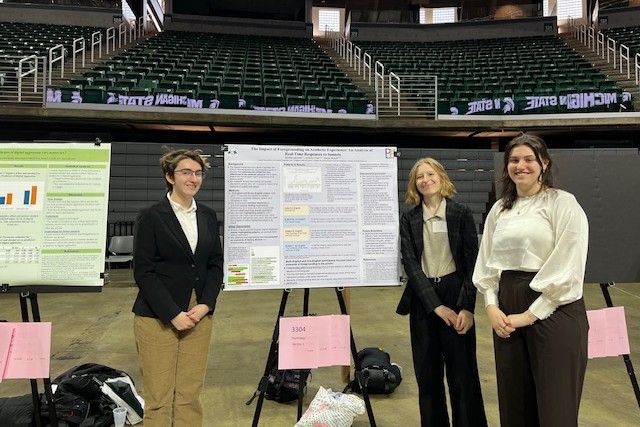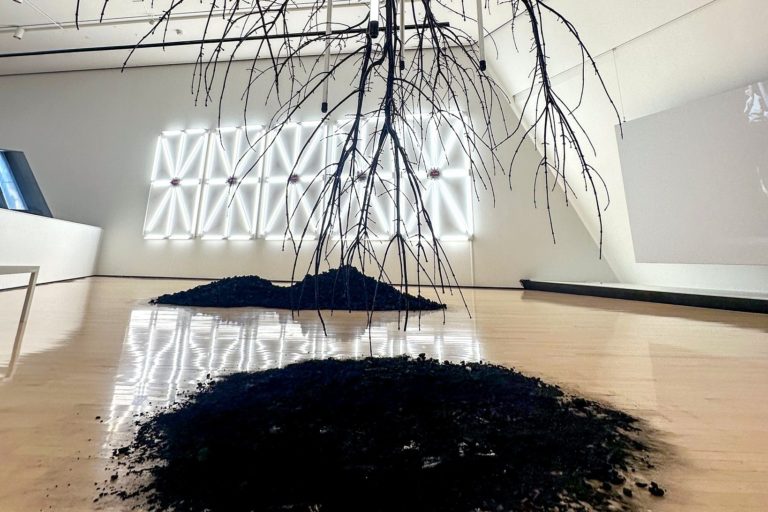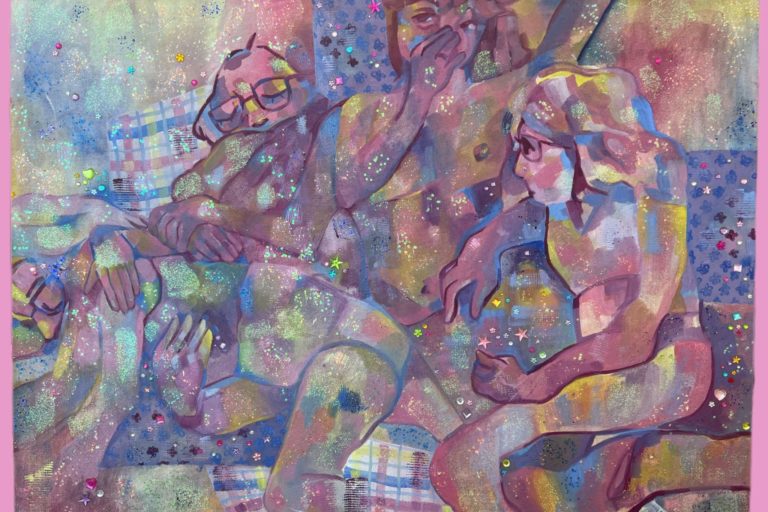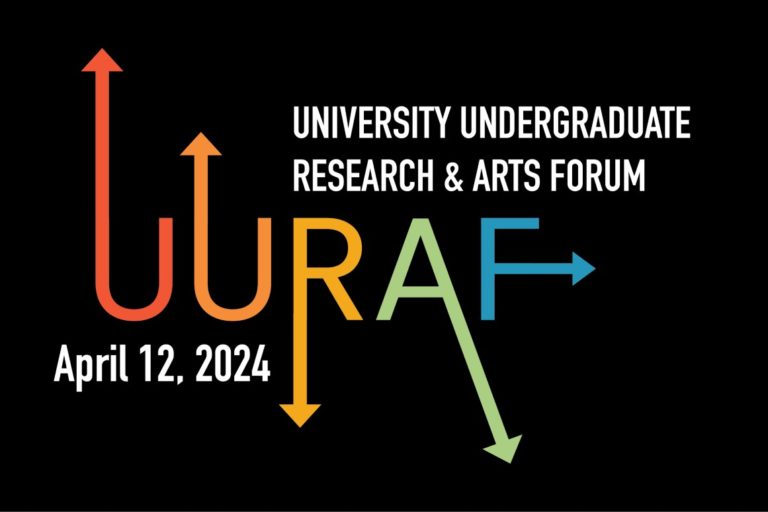A team of College of Arts & Letters students received a Grand Prize Award for their research presented at the 2024 University Undergraduate Research and Arts Forum (UURAF).
Nearly 1,000 students presented research and creative arts projects at this year’s UURAF. First-place awards were given in each of the 37 program categories, but only two grand prizes were awarded – one in the Social Science, Humanities, and Arts Division and the other in the Science, Technology, Engineering, and Mathematics Division.
The Grand Prize Award for Social Science, Humanities, and Arts went to the team of Natalie Liliensiek, a senior with a double major in English and Arabic and a minor in Writing; Gracie Rudolfi, a senior English major; and Lorraine Inman, a sophomore with a double major in Game Design and Interactive Media and English and a minor in Comic Art and Graphic Narrative.

Their award-winning research, titled The Impact of Foregrounding on Aesthetic Experience: An Analysis of Real-Time Responses to Sonnets,examined the similarities and differences in the aesthetic pleasure that English and non-English majors experience while reading poetry. This interdisciplinary study was conducted through MSU’s Digital Humanities and Literary Cognition Lab (DHLC) with Natalie Philips, Associate Professor of English and co-director and founder of the DHLC, serving as mentor.
Their in-person poster presentation focused on how the use of foregrounding and literary devices in poetry impacts aesthetic experience.
The study is based on the theory that literary devices, like metaphor or imagery, are brought to the “foreground” of a reader’s attention instead of the literal meaning of the text. This theory explains why certain foregrounding moments are closely tied to an aesthetic response and if these responses correlate to specific skill sets.
Participants in the study were tasked with highlighting moments they found aesthetically pleasing and unpleasing in corresponding colors. The Digital Humanities and Literary Cognition Lab then compiled and graphed the qualitative data to visualize and compare the highlighting patterns of both participating groups.
When analyzing the data, the team found that the trends between the two groups were more similar than they initially hypothesized. They also found that devices like metaphor, personification, alliteration, imagery, and ambiguity appeared the most frequently across popular words and phrases, which suggested that this ability of the literary devices to bring language to the foreground of a text is essential to producing pleasurable aesthetic effects.
“One of the results we found most exciting about our work was that it shows you don’t need an English degree or college level English classes in order to enjoy and understand poetry.”
Natalie Liliensiek
“One of the results we found most exciting about our work was that it shows you don’t need an English degree or college level English classes in order to enjoy and understand poetry,” Liliensiek said. “There are often elitist ideas surrounding poetry, ideas that you need a certain level of higher education classes in order to appreciate and enjoy poetry. The results of our study suggest otherwise: that poetry can be (and is) enjoyed by everyone, and beyond that, we tend to be universally drawn towards certain moments of poetry due to the figurative language used.”
The 26th annual UURAF was held both online and in person at MSU’s Breslin Student Events Center on April 12. This hybrid event featured hundreds of undergraduate research projects and creative endeavors, including many from the College of Arts & Letters.
One first-place prize of $100 was awarded for the best presentation in each of the 37 categories. The first-place award recipients were then eligible to submit their work for consideration for one of the two $500 grand prize awards, which were announced in mid-June.
“One of the greatest difficulties for UURAF was taking our data and our findings and condensing them into a single poster and finding a way to explain and discuss our research in a short amount of time,” Liliensiek said. “We’ve spent so much time combing through data and writing our article, that honestly it was exciting to get the chance to discuss it with people who were outside of our project.”
Co-sponsored by the Office of the Associate Provost for Undergraduate Education and the Honors College, UURAF provides an opportunity for MSU undergraduate students to work with mentors and share their scholarship and creative activity with faculty, staff, peers, and external audiences. The students gain experience presenting their research and answering questions about their work from audience members while receiving constructive feedback from judges. This year’s undergraduate researchers were mentored by more than 500 faculty, staff, post-doctoral fellows, graduate students, and industry partners.


